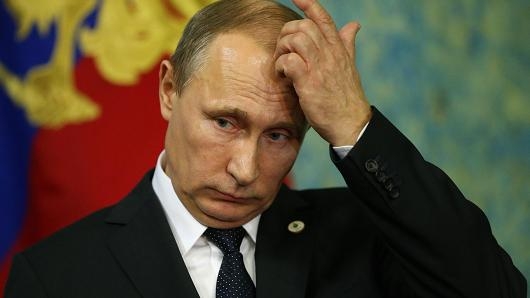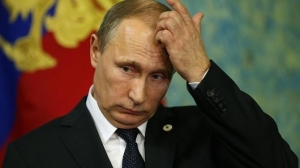Putin Slams Door on UN Human Rights Offices in Russia
MOSCOW – Russian President Vladimir Putin has ordered the immediate closure of the United Nations Human Rights offices operating in Russia, according to Moscow’s diplomatic mission in Geneva.
According to a report dated 12 March, Putin ordered the closure of the offices as he claimed the UN was no longer needed or welcome in the country after having fulfilled its mission to establish human rights norms in Russia.
"It's very sad that the Russian government is closing the UN's human rights office, because it has done a great deal of good work – essential work – in the country," Human Rights Watch deputy director for Europe and Central Asia, Rachel Denber, said in a statement to the international media.
The UN’s Office of the High Commissioner for Human Rights (OHCHR) said at the time of the report’s release that they were aware of Moscow’s decision, which they said they anticipated following recent meetings with Russian officials.
Russia has come under intense criticism in recent months amid a major spike in the number of attacks on journalists, human rights workers, opposition political parties and sexual minorities.
Mass Human Rights Abuses Mark Putin’s 17-year Rule
Putin’s increasingly autocratic regime has banned all international rights groups and NGOs from the country, having classified the groups as undesirable foreign agents and national security threats.
Over the last decade, humanitarian organizations have recorded thousands of forced disappearances in the North Caucasus as Moscow and its local proxies brutally suppressed an independence movement in its restive republic of Chechnya.
Russian citizens in opposition to the Kremlin’s policies in Ukraine, Georgia and Moldova – countries where Moscow has militarily occupied whole swathes of sovereign territory – are liable to be arrested and charged under Russia’s draconian extremism laws.
Putin’s crackdown on the country’s fractured political opposition has led to the arrest of dozens of prominent opposition activists – including former Moscow mayoral candidate Alexey Navalny and former world chess champion Garry Kasparov.
Countless others have been imprisoned or forced into exile after constant harassment by Russia’s feared FSB security service, the self-described heirs to the Soviet KGB.
Boris Nemtsov, Russia’s opposition leader and former prime minister, was gunned-down in February 2015 steps from the Kremlin. A fierce critic of Putin’s, his death remains unsolved.
Nemtsov’s murder, along with those of prominent journalists Anna Politkovskaya and Natalya Estemirova – both of whom documented human rights abuses in Putin’s Russia, have been interpreted by Britain’s MI6 and the US’ CIA as a stark warning by the FSB to those who oppose the Kremlin.
Moscow’s decision to remove the OHCHR is being seen by the UN as a signal to the international community that the gloves are about to be taken off ahead of Russia’s parliamentary elections in September.
Russia’s highly politicized judiciary system – which answers directly to the Kremlin – is widely criticized for its seemingly arbitrary imprisonment of those who oppose the current regime.
The UN and most Western governments have repeatedly slammed Russia for the arrest of Ukrainian citizens Nadya Savchenko and Oleg Sentsov.
Savchenko, a POW from Russia’s on going war in eastern Ukraine, and Sentsov, an independent filmmaker, were tried and sentenced to lengthy terms in prison colonies based on thinly supported charges of murder and terrorism.
Neither of the two defendants was ever granted access to international legal support and Russia flatly ignored the outcry from aid organizations and the UN, who demanded their release.
"The decision to close the UN’s offices is, sadly, not entirely surprising, coming as it does amid so many steps by the Russian government to close the country off from any independent monitoring," Denber from Human Rights Watch said.
By Nicholas Waller
Photo: Sasha Mordovets | Getty Images












